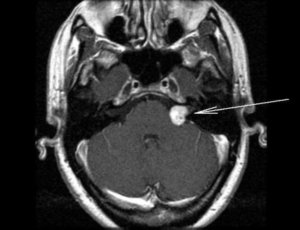About MRI
The MRI services provided at ImageCare include conventional MRI and MRA, open MRI, cardiac MRI, MR arthrography and MRI breast and guided breast biopsies.
Locations
Technology
ImageCare provides the most options to patients needing an MRI.
We have GE 1.5 Tesla HD (high definition) short bore magnets and Siemens 1.5 Tesla and 3.0 Tesla open bore magnets. Siemens and GE are the industry leaders in MRI technology, allowing ImageCare to offer more options to patients than any other imaging facility in upstate NY. The machines are all accredited by the ACR (American College of Radiology) and are so advanced that we have the capabilities to image the heart in motion and perform MRI Guided Breast Biopsies on lesions as small as 3mm.
Patient Forms
For your convenience you are now able to view and print pertinent forms online to have ready when you come in for your appointment. The forms below are in .PDF format.
Preparing for Your MRI Scan
- Due to the strength of the magnetic field, you must remove all metallic objects before you are scanned. For example — jewelry, glasses, clothing with zippers, nonpermanent dentures and credit cards must be removed.
- You may be asked to change into a hospital smock.
- Go to the bathroom so you will be comfortable during the exam.
- If you are very nervous you can discuss taking a sedative with your doctor before your scan.
Case Studies
This patient presented with recent hearing loss and an onset of headaches. After completing an MRI it was discovered that the patient had an inner ear tumor as shown by the arrow.

Frequently Asked Questions
How long with the MRI exam take?
Here at ImageCare we offer many types of MRI exams. A typical exam will usually last between 10 and 30 minutes. More involved exams can take about an hour. If you have any questions regarding the length of the exam, please do not hesitate to ask the MR technologist.
Is there any radiation?
MRI uses no radiation. The basic components of MRI are a strong magnetic field and a brief pulse of a radio frequency. There are no known side effects related to MRI. Since there is a strong magnetic field however, people with certain devices such as pacemakers, defibrillators, aneurysm clips and certain cochlear implants must NOT enter the MRI room.
How long before my doctor gets the results?
After the exam is completed, the images are sent to one of our radiologists, (doctors specializing in the evaluation of diagnostic images.) Once read, the radiologist will create a report that will be sent to your referring physician. The entire process usually takes 24-48 hours.
Can I bring someone into the room with me?
Yes, though every person must be screened and cleared to enter the room. All metal must be removed from the body including hairpins, watches, jewelry, keys, and coins. Also, you will be asked to secure your wallet as credit cards and other forms of ID with magnetic strips may be erased.
Can I listen to music during the exam?
This depends on the type of exam you are having. The body part that is being examined must be placed in the center of the tube. For example, for a foot study, the patient’s foot would be positioned in the center of the magnet leaving most of the upper body outside. For this type of exam you could listen to the radio or choose from a list of various CD’s we have compiled. On the other hand, a head scan requires that the patient’s head rest in a special coil positioned in the middle of the magnet leaving no room for headphones.
Will the MRI exam hurt?
The MRI exam itself should cause no pain however, because the patient is required to stay motionless for short periods of time, some discomfort may result. Occasionally patients may feel warmth in the area being scanned. If this becomes uncomfortable or extreme, the patient should inform the technologist immediately.
Can I talk during the exam?
Yes. The technologist will communicate with you throughout the exam. You may talk to the technologist or ask questions at various times. You will know when you hear the noise and vibration stop that a scan has ended. It is very important that you remain still throughout the entire exam.
Will I have a reaction to the contrast if I had a reaction to the CAT Scan contrast?
The contrast used in MRI is not the same as in CT. Conventional radiologic exams use contrast that frequently contain iodine. MRI uses gadolinium, a rare earth metal similar to iron. It is very rare that a patient will have a reaction (about 5% of patients a year experience a mild headache or nausea). As with any substance introduced into the body, there is a slight chance of an allergic reaction.

